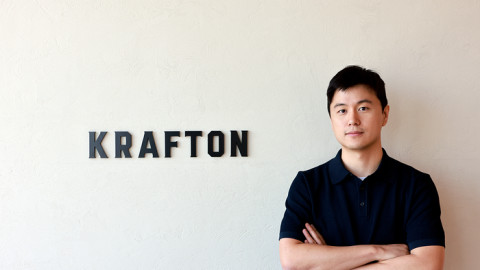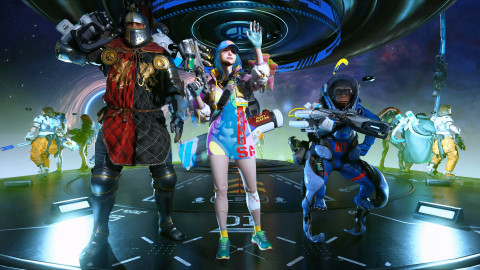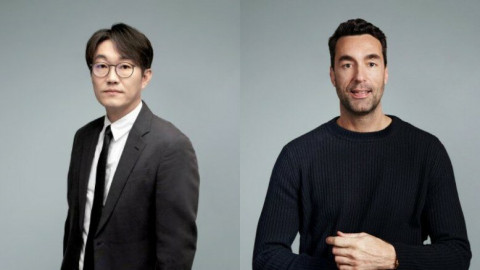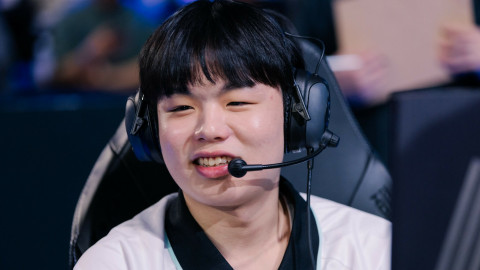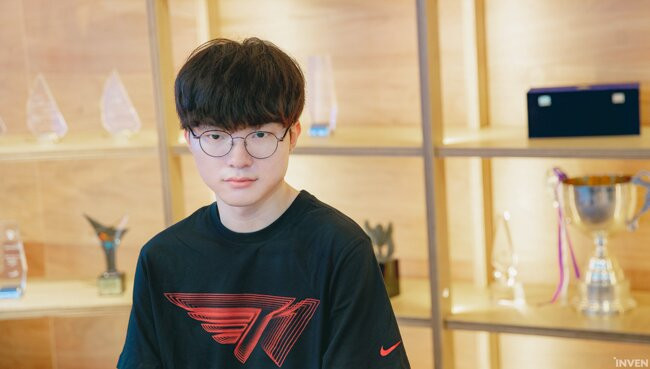
What does it mean to be a veteran? Clearly, there’s more to it than just being active for a long time. Veteran status goes above and beyond showing up at your workplace: it’s about proficiency, career, and the mindset towards the work.
24 is around the age where most young people would enter what people call, ‘The Real World’ in Korea. At this age, however, Lee “Faker” Sang-hyeok is already a seasoned veteran in League of Legends esports. A lot of time has passed since the days he would solo-kill his opponents with a big smile on his face as the youngest member of SK Telecom T1, and today Faker has numerous championship trophies under his belt — he even became a TV star. Many call him the Michael Jordan of LoL esports, but he didn’t reach this status by simply being good at the game.
In a conversation with Inven, Faker revealed that since 2018, he’s been focusing on his inner self, rather than how he appears to others. He also had some advice to give to amateur players dreaming to become pros, and revealed his veteran mindset to those that are about to enter the real world.
From the youngest player on SKT T1 to becoming the pillar of the team, you became the face of T1’s brand. How do you reflect upon your life as a pro gamer so far?
I’ve been a pro player for a very long time. I’m now used to this lifestyle and it feels comfortable.
Looking back to the early days of your career, I remember you being very happy after a solo kill and struggling to answer questions well. Nowadays, you seem very comfortable in interviews, even on TV. Your growth has left me surprised. What can you tell me about it?
I did a lot of interviews and whatnot, so I naturally became better at talking. I learned from watching others as well, and also contemplated on how I can present myself better. That’s how I improved, I think.
There’s a lot of media focus on you, so your wins and losses are always in the spotlight. What do the victories mean to a veteran? It felt like victory is something that you “accomplished” in your rookie days, whereas these days, it feels like something you “secure”.
A victory can be interpreted in many ways, but for me, whether in the past or the present, its meaning hasn’t changed. Winning still makes me feel very satisfied and happy.

How has the way you accepted defeat and failure changed from when you were a rookie? Has the process of getting over it changed in your pro journey?
Looking back at it now, the reason why victory exists is because of defeat. You can’t win every time. What I consider to be critical now is how you shake off your losses and improve from them. If I only lingered on purely winning and losing in the past, I’ve now made it a habit to find how I can improve from the process of winning or losing.
Every single person who’s succeeded in life has experienced failure at some point in their lives, so I think failure takes a bigger part in people’s lives than one may think. It’s important to not lose yourself in the emotions from success and failure.
In the same context as the previous question, how do you reflect on the past Summer Split for T1, and more importantly, on “Faker”? Not only did the team fail to make it to Worlds, but at one time, you were also benched.
There were a lot of internal problems within the team in the Summer Split. It’s a split with a lot of regrets, but I learned a lot, and the things that both the team and I needed to improve on were made clear. These failures will prove to be beneficial for the team in the next season.
Do you think you were in a slump this season?
I never once thought I was in a slump this season. However, after the regional qualifiers, I read the reactions about my performance from the community, and they thought I was in a slump, so I was taken by surprise. I did have a lot of regrets when I ended up playing the last game of the season, but I knew I was going to perform better next year.
Veterans in all fields experience slumps in their careers, whether they may be long or short. As a veteran that has most likely experienced many slumps in your career, how did you end up finding composure in such moments?
I… do find myself in a slump sometimes, but such slumps don’t really mean much. Whatever you’re going through, they all end up passing through. Looking back at it now, while it did feel like things seemed absolutely hopeless at times, it’s important to not let such negativity affect you, and have the attitude of trying to find what the problems are and fix them yourself. If you do, then you’ll definitely overcome slumps.
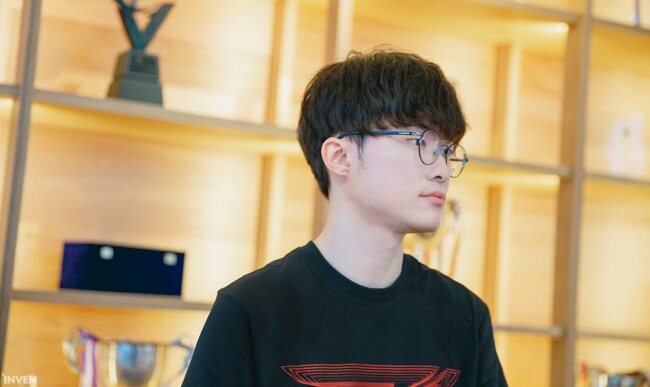
Since you’re the most influential person in League of Legends, you sometimes receive unwarranted hate, rather than constructive criticism. In that manner, T1 officially announced that they’ll be taking legal measures. Do you have a personal way of dealing with such attacks?
I did get hurt from such attacks in the past. However, ever since last year, I learned how to take care of myself mentally, and found a way to just ignore all the negativity. Such hate doesn’t affect me at all anymore, because I’m a person that believes in myself.
What does it mean to trust yourself?
I’ve been trying to receive inspiration from reading a lot of books, and it also helped me to mentally gather myself. Even if it’s not through reading, I think it’s important to have your own personal habit. Receiving counseling is a good example. I learned how to take care of myself through such, and it really helps me find composure.
It seems that you were quite hurt by the community reaction.
The community reaction did affect me, but when I didn’t achieve the results I wanted or didn’t perform well, that had an impact as well. Now, I just think of everything that I experience as parts of the journey that craft my career as a whole, so they don’t really affect me.

What’s the power that drives and supports you as a pro gamer?
What supports me is my own self. Trusting myself and guiding myself to go in the right direction would probably have to be the biggest engine. Also, the people around me and the fans that support me are the smaller cogwheels that keep me going.
What do the fans mean for Faker?
At first, simply having a lot of fans meant that I was successful. In the past, having a lot of fans just brought me happiness and joy. Now, because of my fans, I’m able to keep on going. They’re like the assistants in my life.
People tend to like flashy and busy things when they’re young, but as they get older, they like to keep the circle of people that they interact with smaller, and create their own personal bridges with others. This may not be the case for everyone, but… I don’t know, I think it’s the case for a lot of people. I think that I just found a deep meaning in what fans mean to me.
You talk like a 100-year-old grandpa.
I’m living my second life. [laughs]
Apart from achieving success, what is something that you feel you need to work on to look back in the future and say, “I had a good end to my pro gamer career.”
I think I need to be more diligent.

As a veteran in esports and as someone that’s walking his own unique path, what advice would you like to give to someone that looks to start a career in a certain field?
I’d recommend reading. As I said before, I learn from my own failures. Just like me, others fail time and time again as well. Such failures that people experience are best described in books. On TV and Youtube, the lives of others are not properly represented. When everyone pursues a career, they all start from the bottom up, and in that process, they’ll inevitably experience failure. If you learn about failure from reading, I believe that everyone’s journey will become that much easier.
Throughout the conversation we had, I could tell that you’ve become a much stronger person on the inside. Was there a moment that triggered your inner growth?
It was after 2018. I learned a lot during my slump in 2018, and since then, I was able to self-reflect and find my inner direction, while disregarding how I present myself to others.
Last question: Will there be a rookie that can exceed Faker?
The history of mankind has proven over and over that nothing lasts forever, so I believe that such a player will emerge one day. If such a rookie does emerge, I would be indifferent about it, because it’s the natural order of things. However, as long as I remain a pro player, it’ll be hard for a player to overcome my career. I still believe that I am the best in the world, so I’m not too worried. I’m just focused on self-development.
All images by: Inven

-

-

-

Striving for perfection to achieve excellence in esports
Sort by:
Comments :1
-
0

level 1 Deliciatello
In my opinion it's really important not giving up after failures, because exactly them help us to understand our mistakes and ways we can change it! I want to be an essay writer at https://essayassistant.org/ - it's my favourite dream, because I want to help other students with problems which was met by me a few years ago. So, it's really hard to me create good texts, but I can learn on my mistakes and improve my skills for reaching the dream!


